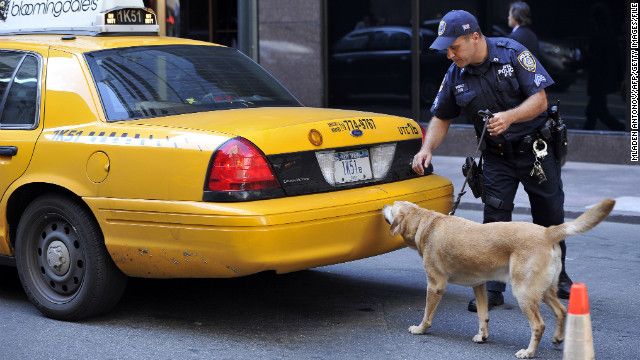When will a drug-detection dog’s alert to the exterior of a vehicle provide an officer with probable cause to conduct a warrantless search of the vehicle?
This was the question posed to the Florida Supreme Court in Harris v. Florida and the U.S. Supreme Court granted certiorari. It is well settled that a K-9 sniff of the exterior of a vehicle is not a search. See Illinois v. Caballes, 543, U.S. 405 (2005), United States v. Place, 462 U.S. 696 (1983). But the issue in Harris was not whether a dog’s sniff of the exterior of a vehicle constitutes a search, but rather what evidence the state must introduce to establish probable cause existed for a warrantless search of a vehicle based on a drug-detection dog’s alert to the vehicle.
The Florida Supreme Court held that the fact a drug detection dog has been trained and certified to detect narcotics, standing alone, is not enough to demonstrate reliability of the dog. The Court required that the state present evidence of the dogs certification records, an explanation of the meaning of the training and certification, field performance records (including unverified alerts), and evidence of the experience of the dogs handler.
One of the foundation for the defenses argument was that a K-9 sniff is similar to where probable cause is based on information provided by informants, whereas the part of the informant’s reliability is in the informant’s past reliability. Similarly, the K-9’s reliability to alert to illegal substances within the vehicle is crucial to determining whether probable cause exists. If a dog is unreliable then the dog’s alert, by itself, does not indicate that drugs are probably present in the vehicle. To remedy this, evidence of a dog’s performance in the field is part of the court’s evaluation of the dog’s reliability under the totality of the circumstances analysis.
During oral arguments at the U.S. Supreme Court, the Justices did not appear interested in restricting the use of drug-sniffing dogs as a general police practice and was not impressed with the theory that a well trained dog would not be reliable working in the field. It seems that you may be able raise questions of a dog’s training, certification, and its past reliability in the field, however, the Court was not going to make that an absolute mandate as basis for probable cause to conduct a warrantless search based only on the dog’s alert.

